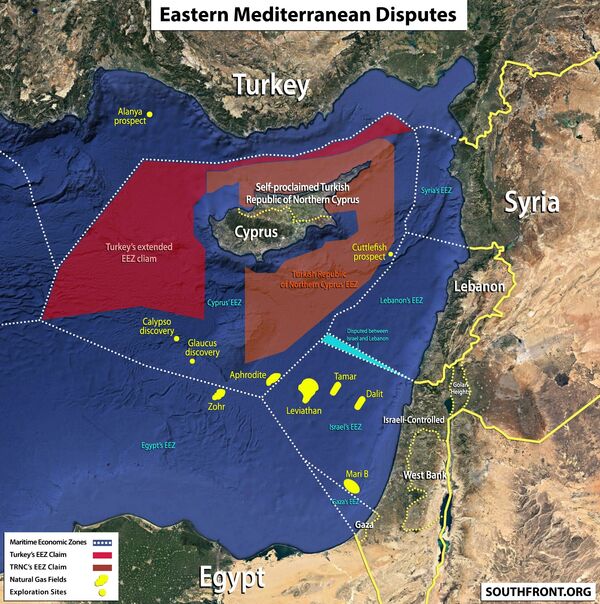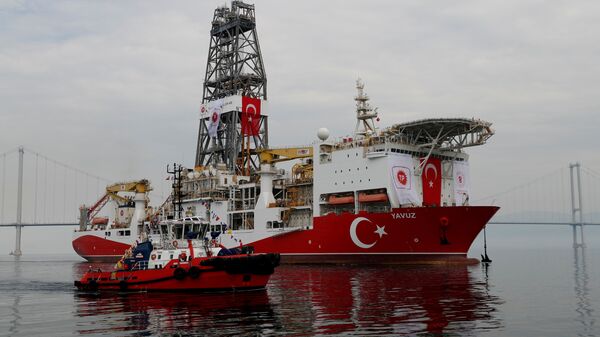Turkey has resumed gas drilling operations in the Eastern Mediterranean, with President Recep Tayyip Erdogan accusing Greece of failing to keep its promises to halt exploration operations in the region on Friday.
"We have resumed the drilling activity. We have sent the Barbaros Hayrettin [ship] to the area," Erdogan said, speaking to reporters following prayers at the Hagia Sophia mosque complex, with his remarks cited by AFP.
According to Erdogan, Turkey's decision to temporarily suspend its drilling operations off a Greek island were not reciprocated, and the Greeks "haven't kept their promises."
The announcement comes a day after Ankara and the Turkish-backed Libyan government in Tripoli declared that that the recently signed Egyptian-Greek agreement on the delimitation of maritime jurisdictions in the Eastern Mediterranean was "null and void," and "violated" and ignored the continental shelf claims made by both Turkey and the Government of National Accord.
Egypt and Greece signed an agreement on Thursday designating large swathes of an oil and gas-rich portion of the eastern Mediterranean as an exclusive economic zone. Greek Foreign Minister Nikos Dendias praised the deal, stressing that it "respects all concepts of international law and the Law of the Sea and good neighbourly relations, and contributes to security and stability in the region."
Erdogan dismissed the Egyptian-Greek treaty in his remarks Friday, saying that it "has no value."
Cairo, which has an ongoing dispute with Ankara in Libya, where the two nations are supporting rival factions vying for control of the country in an ongoing civil war, joined Greece in condemning a 2019 Turkish-Libyan maritime delimitation agreement which claimed oil and gas-rich portions of the Eastern Mediterranean to belong to them, describing the agreement as "illegal."
Greece's dispute with Turkey involves Turkish gas exploration activities off the coast of Cyprus, and a separate, decades-old maritime delimitation dispute with Ankara in the Aegean Sea. The European Union has taken Greece and Cyprus's side in the dispute, with Germany and other EU members condemning Turkey's drilling activities.
Hopes for a cooling of tension between the two NATO allies emerged late last month, when Erdogan ordered a halt in gas exploration drilling and announced a willingness to talk to Greek officials "without any precondition." Turkish Defence Minister Hulusi Akar has stressed that any energy projects in the eastern Mediterranean which do not include Turkey will be "doomed to fail."

The Mediterranean gas disputes are part of a broader pattern of tense relations between Turkey and many of its neighbours in recent years, including Ankara's unsanctioned military operations in Syria and Iraq, its direct military intervention in the Libyan civil war, a long-running verbal back and forth between President Erdogan and Israeli Prime Minister Benjamin Netanyahu, and tensions with the European Union over Syrian refugees.


